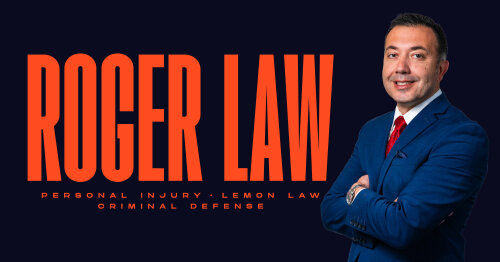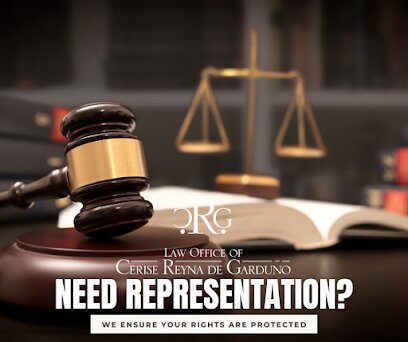Best Juvenile Law Lawyers in United States
Share your needs with us, get contacted by law firms.
Free. Takes 2 min.
Or refine your search by selecting a city:
List of the best lawyers in United States
About Juvenile Law in the United States
Juvenile Law in the United States is a specialized area of legal practice that deals with individuals under the age of 18 who are accused of committing a crime or are doing acts deemed unlawful for minors, such as truancy or curfew violations. This branch of law is designed with the understanding that juveniles are different from adults, both in terms of development and potential for rehabilitation. The juvenile justice system primarily focuses on rehabilitation rather than punishment, with the goal of helping young offenders reintegrate successfully into society.
Why You May Need a Lawyer
There are several situations where a person might need legal assistance in Juvenile Law. These can include instances where a juvenile is accused of committing a crime, involvement in child protection or custody issues, truancy, runaway cases, or when facing school disciplinary actions that may have legal consequences. Additionally, navigating the juvenile justice system can be complex, and having a lawyer can help ensure fair treatment and that the young person’s rights are protected. An attorney can be crucial in advocating for the best possible outcome for the juvenile and their family.
Local Laws Overview
Juvenile Law can vary significantly from one jurisdiction to another. However, there are several key aspects that are commonly observed across the United States:
- Age of Jurisdiction: Typically, individuals under 18 are subject to Juvenile Law, but this can vary depending on the state.
- Court Procedures: Juvenile courts often have a different set of procedures, which can be less formal than adult courts. Hearings might prioritize privacy and focus on the juvenile's welfare.
- Sentencing: Sentencing in juvenile cases often includes alternatives to incarceration, such as rehabilitation programs, community service, or probation.
- Records: Juvenile records are often sealed or expunged once the individual reaches a certain age or after a certain period, provided they meet specific conditions.
- Transfer to Adult Court: In some cases involving serious offenses, juveniles may be tried as adults.
Frequently Asked Questions
What is the primary goal of the juvenile justice system?
The primary objective is to rehabilitate and offer guidance to young offenders to help them reintegrate into society successfully, rather than just punish them.
At what age can juveniles be tried as adults?
This varies by state, but juveniles as young as 16 can be tried as adults for certain serious offenses in many jurisdictions.
Do juveniles have the right to a jury trial?
Typically, no. Juvenile court proceedings usually do not involve a jury trial; instead, a judge makes the decisions.
What happens at a juvenile detention hearing?
At this hearing, a judge decides whether the juvenile will remain in detention or be released until their court date.
Can a juvenile’s records be expunged?
Yes, in many states, juvenile records can be sealed or expunged, allowing for a fresh start in adulthood under certain conditions.
What is a diversion program in Juvenile Law?
Diversion programs provide alternatives to formal processing in the juvenile justice system, focusing on rehabilitation through counseling, education, and community service.
Who can attend a juvenile court proceeding?
Juvenile court proceedings are typically closed to the public to protect the privacy of the juvenile.
Are parents responsible for their child's legal costs in a juvenile case?
Generally, yes. Parents are often responsible for the legal costs incurred in a juvenile case, although indigent juveniles can potentially receive public defender services.
How does plea bargaining work in juvenile cases?
Plea bargaining is allowed in juvenile cases and involves negotiating an agreement with the prosecutor for a lesser charge or reduced sentence.
What role do social services play in Juvenile Law?
Social services may be involved in providing assessments, rehabilitation programs, and family support to address the underlying issues leading to delinquent behavior.
Additional Resources
For those seeking more information or legal help in Juvenile Law, several resources and organizations can be beneficial:
- National Juvenile Defender Center
- American Bar Association - Juvenile Justice
- Local State Bar Associations
- Office of Juvenile Justice and Delinquency Prevention
- Legal Aid Society
Next Steps
If you or someone you know needs legal assistance in Juvenile Law, consider the following steps:
- Consult with a specialized Juvenile Law attorney who can provide guidance based on your specific circumstances.
- Research and reach out to local legal aid services or public defender offices if cost is a concern.
- Contact relevant governmental or non-profit organizations for additional support and resources.
- Ensure you understand your state's specific juvenile laws by consulting with local legal experts or using online resources.
Taking these steps can help safeguard rights and achieve the best possible outcomes in juvenile legal matters.
Lawzana helps you find the best lawyers and law firms in United States through a curated and pre-screened list of qualified legal professionals. Our platform offers rankings and detailed profiles of attorneys and law firms, allowing you to compare based on practice areas, including Juvenile Law, experience, and client feedback.
Each profile includes a description of the firm's areas of practice, client reviews, team members and partners, year of establishment, spoken languages, office locations, contact information, social media presence, and any published articles or resources. Most firms on our platform speak English and are experienced in both local and international legal matters.
Get a quote from top-rated law firms in United States — quickly, securely, and without unnecessary hassle.
Disclaimer:
The information provided on this page is for general informational purposes only and does not constitute legal advice. While we strive to ensure the accuracy and relevance of the content, legal information may change over time, and interpretations of the law can vary. You should always consult with a qualified legal professional for advice specific to your situation.
We disclaim all liability for actions taken or not taken based on the content of this page. If you believe any information is incorrect or outdated, please contact us, and we will review and update it where appropriate.
Browse juvenile law law firms by state in United States
Refine your search by selecting a state.
















